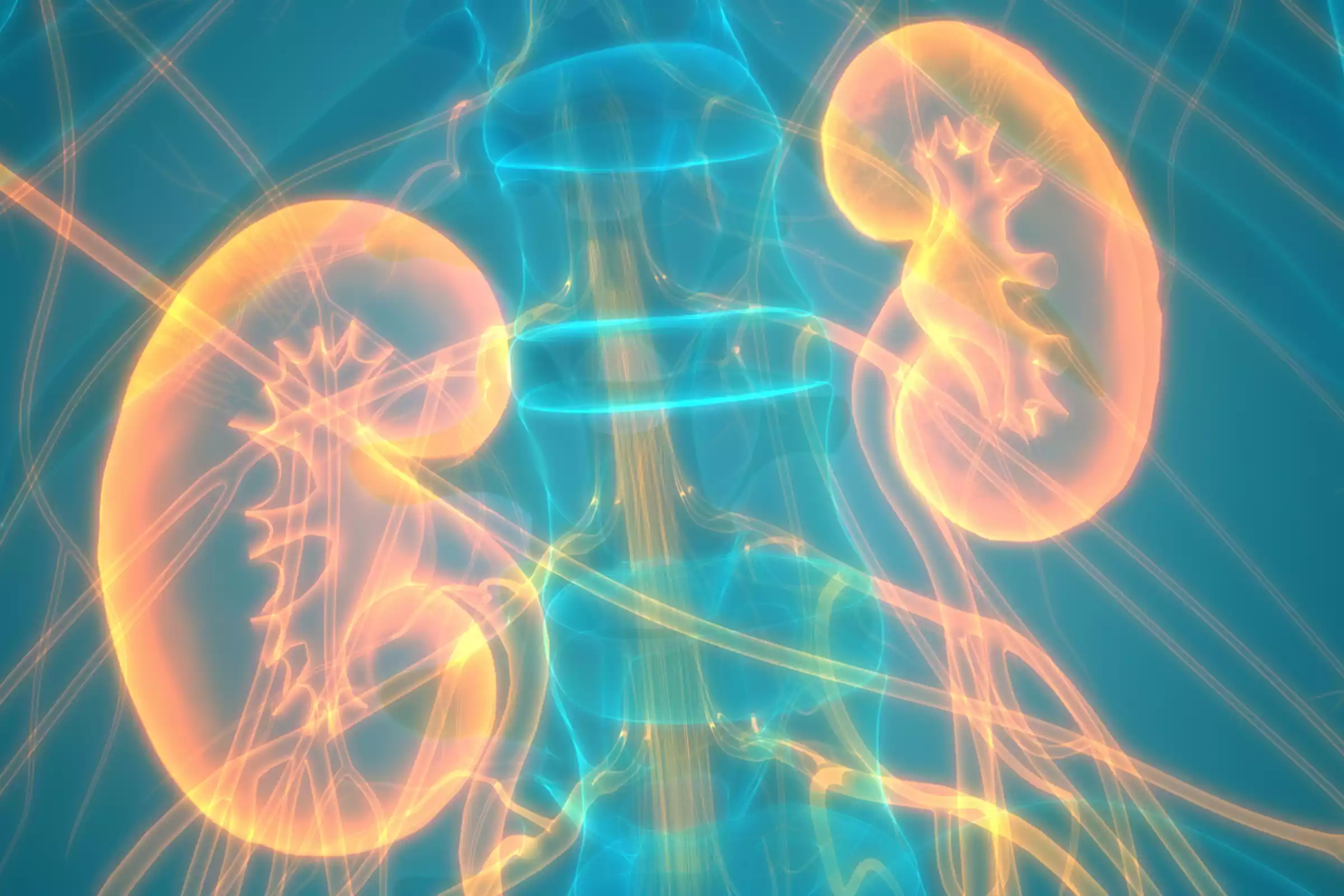The electrolyte sodium is an essential component in the body, which is essential to maintain different bodily functions. However, the imbalance of sodium levels can result in two distinct disorders: hyponatremia and hypernatremia.
We will examine the key differences between the Hypernatremia and Hyponatremiaand their causes symptoms, signs, treatment, and diagnosis as well as their impact upon our overall health. Understanding the differences between hyponatremia, and hypernatremia, is vital to maintaining the balance of sodium in a healthy way and overall health.
Explanation of Hypernatremia
Hypernatremia is a medical issue that is characterized by high levels of sodium (specifically sodium ions) in the blood. It is a sign of an excess of sodium in relation to the volume of water present in the body, resulting in an increase in sodium ions in the bloodstream.
This disorder alters the balance of electrolytes within the body and may cause a variety of adverse consequences on organ function and general health. Hypernatremia is often caused by the lack of water or dehydration. of water, which results in an increase in sodium levels.

Explanation of Hyponatremia
Hyponatremia is a medical issue that is defined by the abnormally high amounts of sodium (specifically sodium ions) in blood. It is a sign of an inadequate amount of sodium in comparison to the amount of water within the body, which results in an insufficient amount of sodium ions within the bloodstream.
Hyponatremia affects the balance of electrolytes within the body and may cause serious health issues. The condition may be caused by excess fluid intake, medical conditions, medications, or hormonal imbalances. it can cause various signs and complications, which can affect the overall health and function of organs.

Importance of maintaining sodium balance in the body
Maintaining a balanced sodium level in the body is essential for a variety of vital functional functions as well as overall general health. Sodium is among the most important electrolytes found that are present in our body. its balance is controlled by a variety of mechanisms.
Here are some reasons why maintaining a balanced sodium level is crucial:
- Fluid Balance: The sodium plays a vital role in regulating your body’s fluid equilibrium. It regulates the flow of water within and around tissues, cells, and organs. The proper balance of fluids is vital for cell water hydration as well as blood volume regulation and maintaining stable blood pressure.
- Blood Pressure Regulation: Sodium levels affect blood pressure. A high sodium level could result in increased blood pressure which can be an indicator of stroke and heart disease. Maintaining a balanced sodium level helps to keep blood pressure to healthy limits.
- Neuron Function: The sodium ions play a crucial for the production as well as transmission of impulses from nerves. They play an essential function in the operation of the nerve system, which allows muscles to contract and reflexes as well as the communication among nerve cells.
- The Muscle’s Function: The importance of sodium is to the proper functioning of muscles which includes relaxation and contraction. Muscle cells depend on the motion of sodium ions to start and regulate these processes.
- Kidney Function: Kidneys perform an important role in the regulation of the balance of sodium. They are able to retain or expel sodium when required to keep the body’s sodium levels within the limits. Instabilities can stress the kidneys, which can affect their functioning.
- Acid-Base Balance: Sodium plays a role in keeping the body’s acid-base balance. It is in contact with bicarbonate ions in order to maintain your body’s pH and ensure that they stay within the healthy range.
- Cellular function: Ions of sodium are crucial for the function of a range of transport mechanisms inside cells, including the absorption of nutrients such as amino acids and glucose. They also assist in maintaining the potential for electrical energy across cell membranes.
- Hydration: A healthy sodium balance is directly connected to the state of hydration. If sodium levels are too high or low, they can impact the way that your body stores or loses water. This could lead to problems like well-being or dehydration. (fluid retention).
- Cognitive Function and Cognition: The requirement for sodium is the best cognitive function and brain health. Insufficiencies can cause neurological signs like seizures, confusion, or the condition known as coma.
- Health in general: Sodium balance is closely linked to the balance of other electrolytes like potassium and chloride. The maintenance of these balances is crucial for general health and good functioning of different organ systems.
The balance of sodium is crucial to maintain equilibrium in the body. If sodium levels are in the proper range, it helps support a variety of bodily processes that are crucial for good health, such as blood pressure regulation as well as the function of muscles and nerves, and the proper intake of water. It emphasizes the importance of having a balanced diet and healthy lifestyle to ensure overall health.
Comparison Table of Hypernatremia and Hyponatremia
Here’s a comprehensive comparison table highlighting the key differences between hypernatremia and hyponatremia:
| Characteristic | Hypernatremia | Hyponatremia |
|---|---|---|
| Definition | Elevated blood sodium levels | Decreased blood sodium levels |
| Sodium Concentration | High | Low |
| Common Causes | Dehydration- Reduced water intake- Diabetes insipidus | Excessive fluid intake- Certain medical conditions- Medications |
| Symptoms | Thirst- Dry mucous membranes- Confusion- Muscle twitching | Headache- Nausea- Vomiting – Muscle cramps- Fatigue |
| Diagnosis | Blood sodium levels- Serum osmolality | Blood sodium levels- Serum osmolality |
| Treatment | Address the underlying cause- Fluid replacement therapy- Monitoring and follow-up | Address the underlying cause- Fluid restriction or hypertonic saline therapy |
| Complications | Neurological symptoms- Coma- Organ dysfunction- Death (if severe and | Seizures- Cerebral edema- Respiratory distress- Confusion |
| Prevention and Lifestyle | Adequate hydration | Be mindful of fluid intake |
| Considerations | Monitoring sodium levels- Address underlying medical | Consider sodium content in the diet- Avoid excessive water intake |
Please note that this table provides a general overview of the differences between hypernatremia and hyponatremia. Individual cases may vary, and medical evaluation is crucial for accurate diagnosis and management. Additionally, the severity of symptoms and complications can vary widely, depending on the specific sodium imbalance and its underlying causes.
How common are these conditions?
The incidence of hypernatremia and hyponatremia may vary based on a variety of factors, including the size of the population being studied or the location, as well as the medical condition of the people who are being studied. However, I am able to provide a description of the frequency of these diseases based on the information available as of my last update of knowledge on September 20, 2021.
- Hypernatremia:
- Hypernatremia is less frequent than hyponatremia.
- It’s often linked to particular medical conditions or situations that cause extreme dehydration, diabetes, or certain medicines.
- The incidence of hypernatremia tends to be greater in hospitals, particularly for patients who are critically ill and older people.
- The general populace has hypernatremia, which appears to be rare, but it could be caused by insufficient fluid intake or excessive sodium intake.
- Hyponatremia:
- It is more prevalent than hypernatremia and occurs in a broader variety of medical and.
- It may occur in people who suffer from kidney disease, heart failure hormonal imbalances, liver disease, or when they are taking certain medications.
- It can also be caused by exercise, particularly in athletes who drink a lot of water in the course of their exercise.
- Hyponatremia with chronic symptoms is more frequent than acute hyponatremia, and can not be diagnosed in certain cases.
It’s crucial to recognize that the frequency of these ailments can change as time passes due to many factors, including changes to the way of life, eating habits, and the prevalence of medical conditions that are underlying. Furthermore, recognition and treatment of these diseases have increased in recent years, possibly which will lead to more cases being diagnosed.
If you think you are suffering from hyponatremia, or hypernatremia, or are worried about your levels of sodium, it’s important to seek medical examination and guidance to determine the correct diagnosis and the appropriate treatment.
What are the symptoms of hypernatremia and hyponatremia?
Hypernatremia and hyponatremia can be distinguished by a distinct set of symptoms that are mostly related to the fluctuating levels of sodium present in the blood.
Here are the common signs for each condition:
symptoms of hypernatremia (High Blood sodium): Hypernatremia occurs when there is a high concentration of sodium in the blood in relation to the amount of water that is present in the body. The symptoms of hypernatremia are usually due to dehydration as well as the effects of high sodium levels on body organs and cells.
The most common symptoms are:
- Thirst: Thirst is among the most prominent signs of hypernatremia. This is the body’s response to boost fluid intake in order to reduce the sodium levels in the blood.
- Dry mucous membranes: Mouth and mucous membranes can become dry, sticky, and parched because of dehydration.
- Confusing: High sodium levels may affect the brain’s function, causing irritation, confusion, and a deterioration in mental health.
- The word “restlessness”: is Arousal, restlessness, and hallucinations that may be experienced in extreme cases.
- Muscle TwitchingThe excess sodium in the body can alter neuromuscular functions, leading to muscles twitching, or even weakness.
- Seizures: When the situation is severe hypernatremia could trigger seizures, especially if untreated.
- Coma: High sodium levels could result in consciousness and even coma.
Signs and symptoms of hyponatremia (Low blood Sodium): Hyponatremia is the result of having an insufficient amount of sodium in relation to the amount of water present in the body. The symptoms of hyponatremia are usually caused by the effects of low levels of sodium on cell functioning and fluid balance.
Common signs include:
- Headache: The presence of headaches is a frequent symptom that indicates hyponatremia.
- Nausea: Sometimes vomiting and nausea could be a sign of a problem.
- Vomiting: Instant vomiting could cause hyponatremia to worsen by causing more electrolyte and fluid loss.
- Muscle Cramps: Low sodium levels can cause muscular cramps, weakening, and fatigue.
- Fatigue: General fatigue and weakness are not uncommon.
- Confusing: Hyponatremia can affect cognitive function, causing confusion and disorientation.
- Hallucinations: If the situation is severe people may have hallucinations or a change in mental state.
- Seizures: Severe hyponatremia can result in seizures, and in extreme cases, even coma.
It is important to remember that the severity and intensity of the symptoms could differ based on the severity of the imbalance in sodium and the speed of its development. The milder cases of hypernatremia and hyponatremia could show mild or nonspecific symptoms however, severe cases may be life-threatening.
If you suspect that you or someone else might be suffering from one or the other of these disorders it is crucial to seek medical attention immediately to ensure proper diagnosis and treatment.
Prognosis for hypernatremia and hyponatremia
The outcome of hypernatremia and hyponatremia varies based on several aspects, including the root causes how severe the problem is, and the speed of diagnosis as well as treatment. In general, both of these conditions could have serious health consequences when left untreated, or if they develop into severe.
This article will provide a summary of the treatment options for hyponatremia and hypernatremia:
Hypernatremia: The prognosis of hypernatremia varies depending on the following aspects:
- Basis Cause: The prognosis is dependent on the causes of hypernatremia. If it’s due to an unresolvable cause like dehydration, and it is treated promptly it is typically positive. If however, hypernatremia is a result of a serious medical issue or is persistent and persistent, the outcome may not be as favorable.
- Level of Severity: Hypernatremia’s severity is a major factor in determining the outcome. The milder cases can be more likely to survive but severe hypernatremia may result in grave complications, and when left untreated, may be life-threatening.
- Therapy: Timely and appropriate treatment is essential to ensure a favorable prognosis. The treatment for hypernatremia usually involves fixing the underlying causes and correcting the imbalance in sodium through treatment with fluid replacement. If treated quickly, the majority of patients will recover without issues.
- Complications: The development of complications, like neurological signs (e.g. seizures, seizures or seizures, coma) and organ malfunction can have a major impact on the outlook. Identifying and treating these issues quickly is crucial to improve the result.
Hyponatremia: The treatment for hyponatremia is also based on a variety of variables:
- Basis Cause: The prognosis is affected by the root causes of hyponatremia. If it is due to an irreparable cause like excessive intake of fluids and is treated promptly the outcome is usually positive. If it’s caused by a serious medical issue the prognosis may be less favourable.
- Severity: Hypernatremia’s degree of severity plays a significant role in the prediction. The milder cases can have a better chance of surviving however, severe hyponatremia may result in serious neurological problems or even life-threatening.
- The treatment: The treatment of hyponatremia is to address the root causes and restore the balance of sodium. Based on the extent and the cause the treatment could consist of fluid restriction, hypertonic saline, or modifications to medications. The timely and correct treatment is crucial for a good prognosis.
- Complications: Complications of hyponatremia including brain edema, seizures as well and respiratory discomfort, may be significant and impact the outcome. Rapid management of these problems is vital for a more favorable result.
The prognosis of hyponatremia or hypernatremia could differ, but early detection and proper treatment are essential to improving the outcomes. It is crucial that you seek out medical assistance immediately in the event that you suspect one of the conditions, or are experiencing symptoms that are related to a sodium imbalance.
The healthcare professional will be able to identify the root of the problem and offer the proper treatment to restore your sodium balance and prevent any potential problems.
where are you going?
I want to go to the railway station. But I don’t know it. could you please tell me the way to the railway station?
sure! It’s very simple and not so far from here. go straight for a few minutes and then you will find a left turn road. keep going along the road about 100 yards.
There will you see a foot over a bridge. cross it and turn right. within a few moments, you will see a red building.
Similarities Between Hypernatremia and Hyponatremia
Hypernatremia as well as hyponatremia both are medical disorders marked by a lack of balance in blood sodium levels. One of them has high sodium levels, and the other one has lower sodium levels. While they are distinct, however, there are some commonalities between these two conditions:
- Electrolyte imbalance: Both hyponatremia as well as hypernatremia indicate deviations from normal sodium levels in the blood, which indicates an imbalance in electrolytes.
- Impact on Neurological Functioning: Both conditions can impact the neurologic function. Hypernatremia can cause anxiety, confusion, and seizures, hyponatremia can also trigger neurological symptoms like seizures, confusion, and coma.
- Possibility of Serious Complications: If left untreated or if it is severe both hyponatremia and hypernatremia could lead to grave complications, and in extreme instances, could be life-threatening. These issues could include neurologic issues or organ dysfunction. They can also cause arrhythmias in the cardiac system.
- Assessment of Diagnostics: A diagnosis for both of these conditions is based on analyzing the levels of sodium in the blood and evaluating the osmolality of serum. This process of diagnosis aids healthcare professionals in determining the extent and nature of the imbalance in sodium.
- Importance of the underlying cause: In both hypernatremia and hyponatremia, it’s important to pinpoint and resolve the root cause of the imbalance in electrolytes to effectively treat and manage the problem.
- Fluid Management: Management of both conditions usually involves regulating the intake and output of fluids. In the case of hypernatremia, this could be a matter of rehydrating with fluids while hyponatremia might require fluid restriction.
- Possibility of Changes in Mental State: Both conditions can cause changes in mental health. Hypernatremia can lead to disorientation and anxiety and hyponatremia may cause confusion and an altered state of mind.
- Monitor: Both times patients could require constant surveillance for their levels of sodium, intake of fluids as well and their overall condition to ensure that treatment is successful and the sodium balance is restored.
Despite these commonalities, however, it is important to remember that hyponatremia and hypernatremia are distinct diseases with distinct root causes and treatments. The treatment approach for each one differs depending on whether the objective is to reduce or increase sodium levels in the blood.
Therefore, an accurate diagnosis and the right treatment specifically tailored to the particular situation are essential for the most effective results.
Reference Books
Certainly! Here are some reference books across various fields and topics that have been highly regarded for their quality and information. Please note that my knowledge is based on information available up to September 2021, so there may be newer publications available since then:
1. Medicine and Health:
- “Harrison’s Principles of Internal Medicine” by Dan Longo, et al.
- “Robbins and Cotran Pathologic Basis of Disease” by Vinay Kumar, et al.
- “The Merck Manual of Diagnosis and Therapy” by Merck & Co.
2. Science:
- “Cosmos” by Carl Sagan
- “A Brief History of Time” by Stephen Hawking
- “The Double Helix” by James D. Watson
3. Literature:
- “To Kill a Mockingbird” by Harper Lee
- “1984” by George Orwell
- “Pride and Prejudice” by Jane Austen
4. History:
- “A People’s History of the United States” by Howard Zinn
- “The Guns of August” by Barbara W. Tuchman
- “Sapiens: A Brief History of Humankind” by Yuval Noah Harari
5. Philosophy:
- “Meditations” by Marcus Aurelius
- “Critique of Pure Reason” by Immanuel Kant
- “The Republic” by Plato
Conclusion
Reference books are useful sources of information and knowledge across a broad range of topics. If you are looking to expand your knowledge of medicine, literature, science or philosophy, or any other area the reference books offer valuable information and act as guides to learning and exploration.
A reference book that is well-read can be a reliable companion on your journey of discovery, providing an abundance of knowledge thoughts, concepts, and ideas to enhance your understanding of the world.


